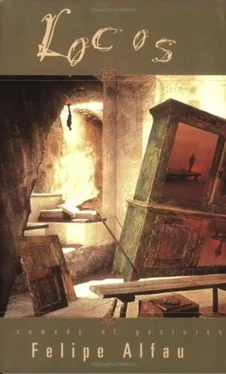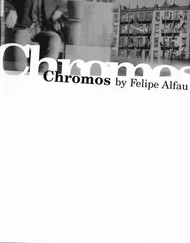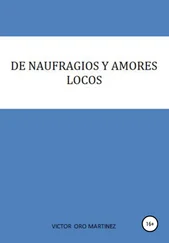It was Don Laureano, indeed, and when I reentered his study with him, I saw Lunarito by the desk, holding the piece of paper, with a dreamy expression in her eyes.
Don Laureano called out:
“Lunarito, did anything happen during my absence?”
Lunarito made no answer, she had not heard him. She was not there. At that moment she was living in the future, walking with Gaston Bejarano along upper Alcala Street on a rainy night.
It is long since begging took alarming proportions in Spain. This situation is now definitely established upon a safe, sure basis, having taken deep root in the Spanish soil. It is now a broad, solid organization which grows steadily. Begging in Spain is, besides a respectable occupation, a profitable business and an enviable profession.
Much has been said about the corrupted ways of beggary in Spain, such a topic being one of the general themes of conversation and dispute which resound in all social classes except those composed of the cream of this type. Much has been said about the sincere ways of beggary in Spain, especially since the law forbade the exercise of this profession in its purest sense openly, that is, without the aid of some small merchandise as, for instance, pencils or shoestrings. I know not whether such a law still obtains.
During the days following the promulgation of this law, which applied to the beggar as well as the beggee, a certain individual by the name of Garcia was walking in no particular direction, carefully scrutinizing the face of every passerby with the intention of discovering some friend or acquaintance, no matter how remote, or even a faint family likeness to someone he knew, that he might accost the person in order to borrow some money to pay his room and board.
Garcia was not a beggar. He did not wear the uniform. In other words, he was well dressed. Garcia belonged to another profession which, although having many fundamental points in common with it, is not precisely begging. The profession to which Garcia belonged may appear at first sight more brilliant than begging, since in a single stroke and with a bit of good luck it can net as much as a whole week’s earnings from hard, honest labor at straight begging, but under a closer examination it proves to be less profitable in the long run, and begging is a much better one in principle as the field is not so restricted.
Garcia belonged to a profession just as popular as that of begging and which counted on just as skillful performers. Garcia boasted of being one of the best exponents, but now he was disappointed and tired of it. It required too much subtlety and brain work, too much being on one’s guard. Garcia was willing to give up. This fact, considering that Garcia was one of the high lights of his class, proves that it was not as sound as that of begging, as I never heard of a beggar willing to give up.
Yes, Garcia had decided to give up. As a matter of fact, a friend of his, a certain Don Gil Bejarano, had offered him a position in the office of the Prefect of Police, his brother-in-law, as a fingerprint expert. Fingerprints were Don Gil’s mania and he had taught Garcia all he knew about them, perhaps more. Don Gil had offered Garcia the position provided Garcia were willing to let Don Gil have part of his pay, and Garcia had accepted. This was, of course, a secret pact of which Garcia expected to rid himself as soon as he could devise a plan to do so.
But, the position did not begin until next month and Garcia knew that he would not get his pay until the end of that month. Like most people of his profession and caliber, Garcia exercised a tremendous amount of delicacy concerning money that he might earn through such a conventional profession as the one he was about to embrace. When Don Gil made him the offer he did not want to show any hurry or eagerness for fear of losing the position; quite the contrary, he had acted nonchalant and carefully avoided asking to begin earlier. Garcia did not want Don Gil to suspect that he was pressed for money, lest Don Gil might make the terms worse.
The dialogue ran something like this:
Garcia—”Oh, any old time.”
Don Gil—”Will next month do?”
Garcia—”Certainly, whenever you want; there is no hurry.”
Don Gil—”All right, next month, then.”
Garcia—”By the way, can you let me have five?”
And Don Gil had refused.
Garcia had decided to give up his profession in view of this last blow to it, and definitely accept what Don Gil offered. The thing had been arranged for next month and it would be six weeks before Garcia could get his pay. This was the reason why at the present moment he was looking for some victim upon whom to deliver the last stroke of the profession he was forsaking.
However, luck was not with Garcia and so far he had not discovered a single face offering the slightest excuse for an approach. Garcia was rather despondent. He had not eaten since the night before, he had in his pocket exactly a five centimes copper piece and a twenty-five pesetas gold piece. This latter, of course, did not count, for Garcia based upon it much of his social effect.
It is quite fashionable in Spain to have a sentimental story to display at café tables, or at a bench in El Prado, late at night, or at the moment of exchanging confidences. The sentimentalism about The Mother is a question that carries weight in Spain to exculpate an inexculpable individual. One often hears people say:
“He may be a crook or a criminal, but he loves his mother,” and that settles it.
Well, Garcia, once in a time of buoyancy, decided to make an investment. He bought a twenty-five pesetas gold piece which he always carried about with him, and whenever anyone remarked about it, he would say:
“Yes—” here an effective sigh—”my mother gave it to me on the day of my first communion”—a skeptical smile—”I shall always keep it with me. No matter how hard up I may have been at times, I never dreamed of changing it. Some people may think it silly, but what the devil! A mother is a mother, you know we only have one mother”—(a profound silence and a dreamy expression). Garcia had always considered it a great drawback to his profession not to be able to produce tears at will.
And now Garcia was facing the problem of having to change the twenty-five pesetas gold piece and dispense with his sentimental tale, since now he had a job and would probably need it no more.
It was while thus occupied that he was accosted in his turn by a beggar.
Garcia’s first impulse was to laugh long and loud, but knowing that a gentleman should never take such liberties with a beggar, he repressed his desire. Besides, should he refuse, he feared his financial condition would be suspected. Even an unknown beggar’s opinion counts under certain circumstances. Therefore, Garcia took the man into a doorway (for it was forbidden to give alms in public) and gave him the five centimes piece.
Immediately after, he went to a café across the street in order to change the twenty-five pesetas gold piece.
With a heroic and resolute gesture that was to put an end to his past life, Garcia slammed the coin on the counter:
“Change, please.”
The man on the other side of the counter looked at the coin and at Garcia.
“Change for what?” He shouted loudly, brutally, cruelly.
Garcia looked at the coin and then realized that he had given the beggar the gold piece.”[2]
Without regarding the other man’s leer, Garcia picked up the coin and ran out of the café like a madman.
“Better use more sand on that perro chico next time!” shouted the man at his back.
In two leaps Garcia was back on the spot of the accident, but the beggar was gone. He inquired from other beggars the whereabouts of a man of such and such a description.
Читать дальше












